Genip tree
Scientific name: Melicoccus bijugatus
POWO Status: Tree
IUCN Red List threat level: Least Concern
GPS Location: 17° 42′ 56.84″ N, 64° 49′ 51.55″ W
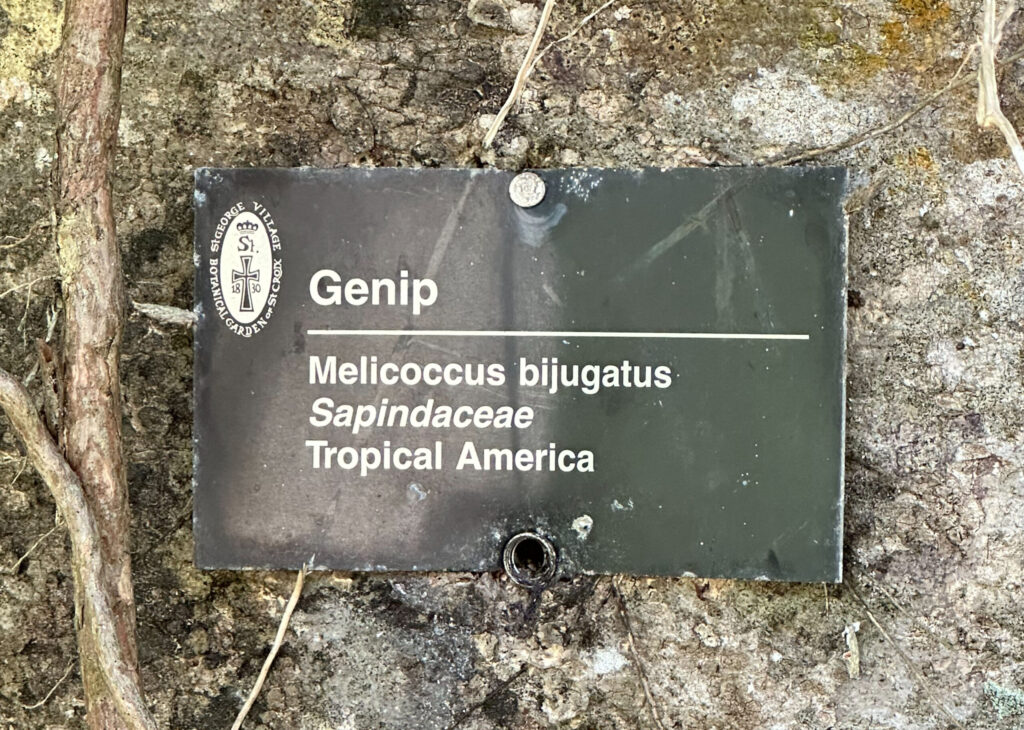
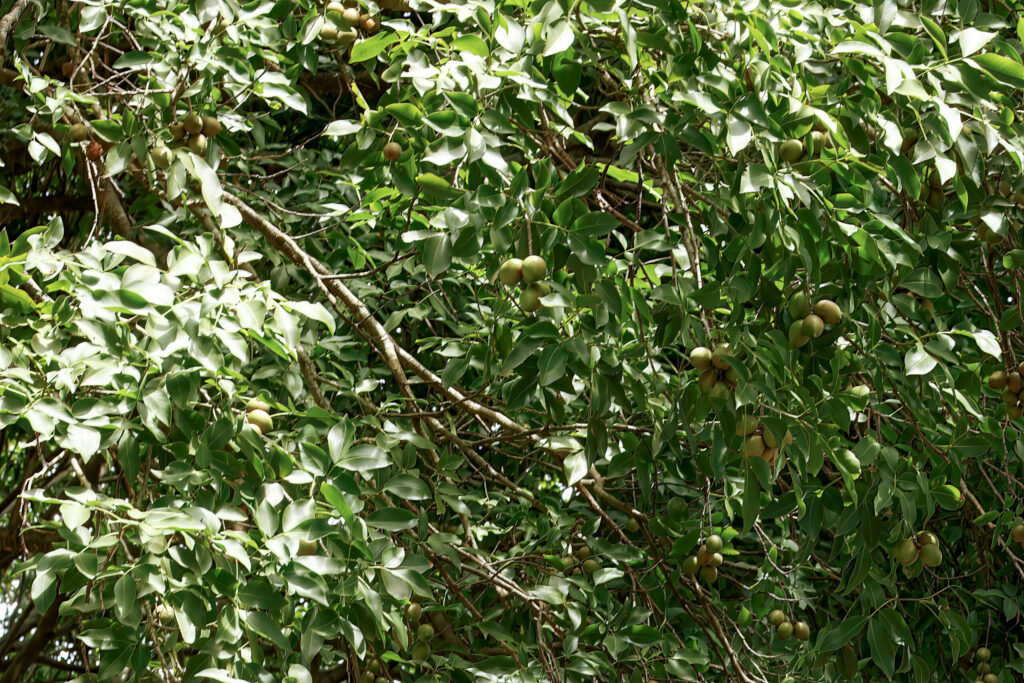
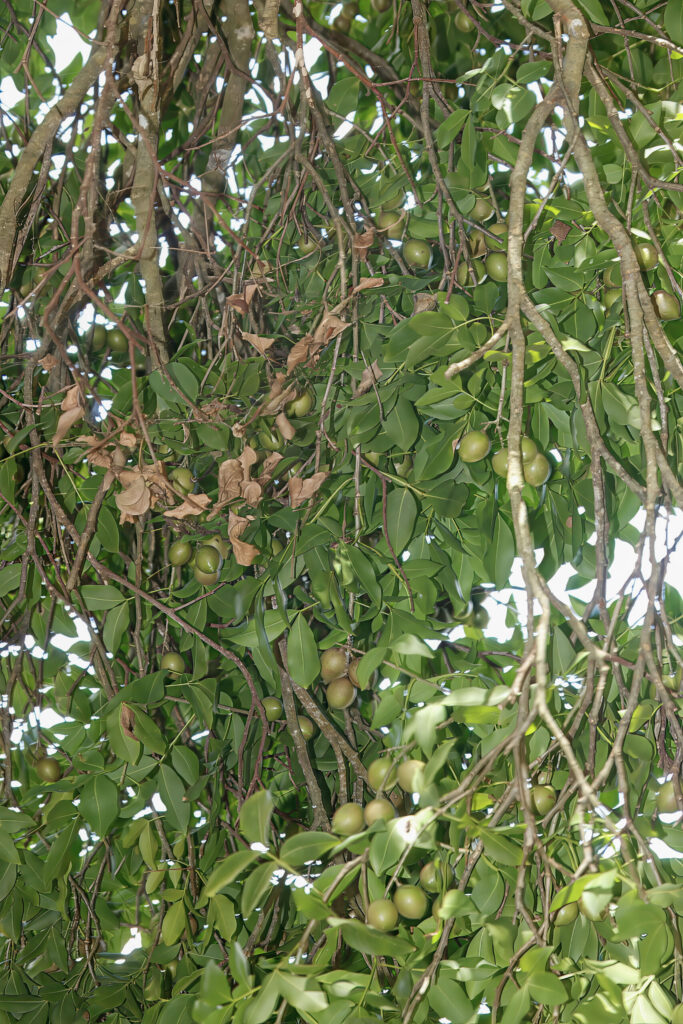
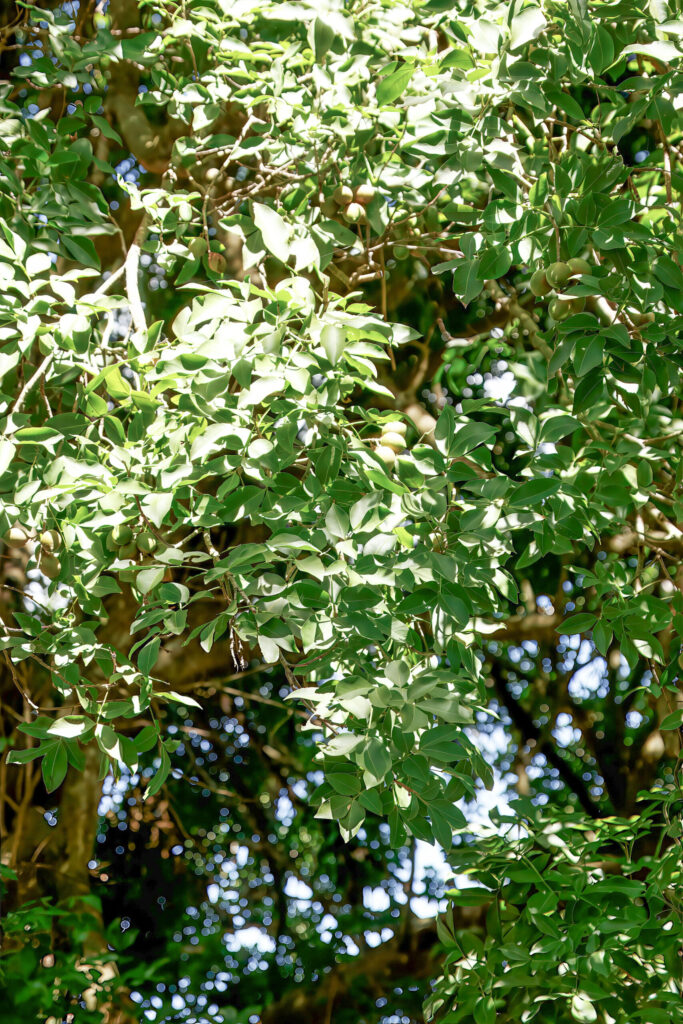
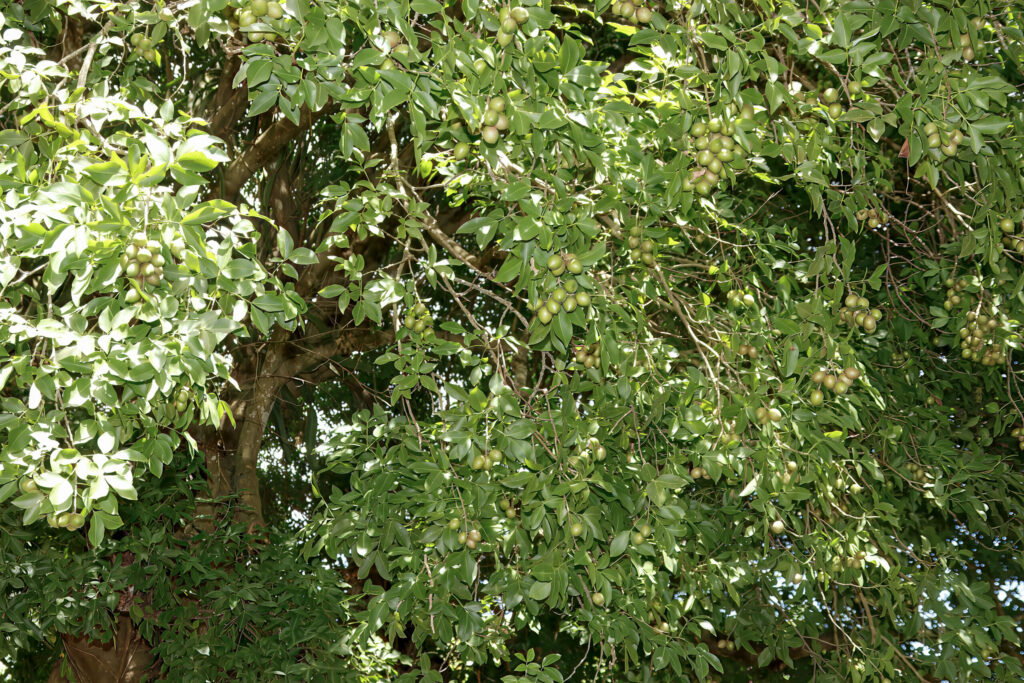
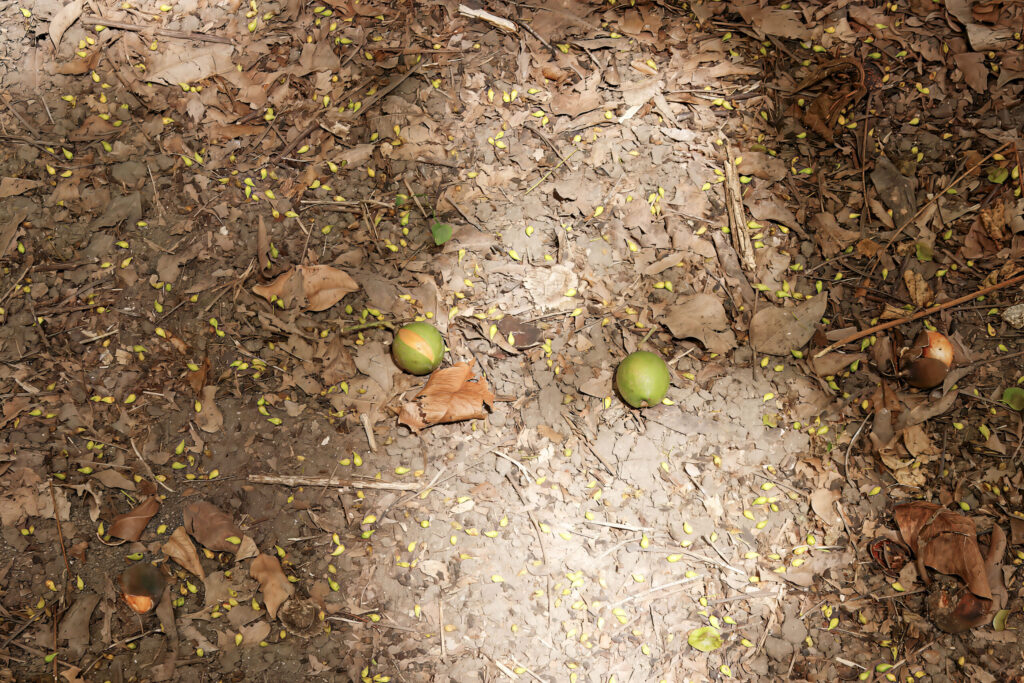
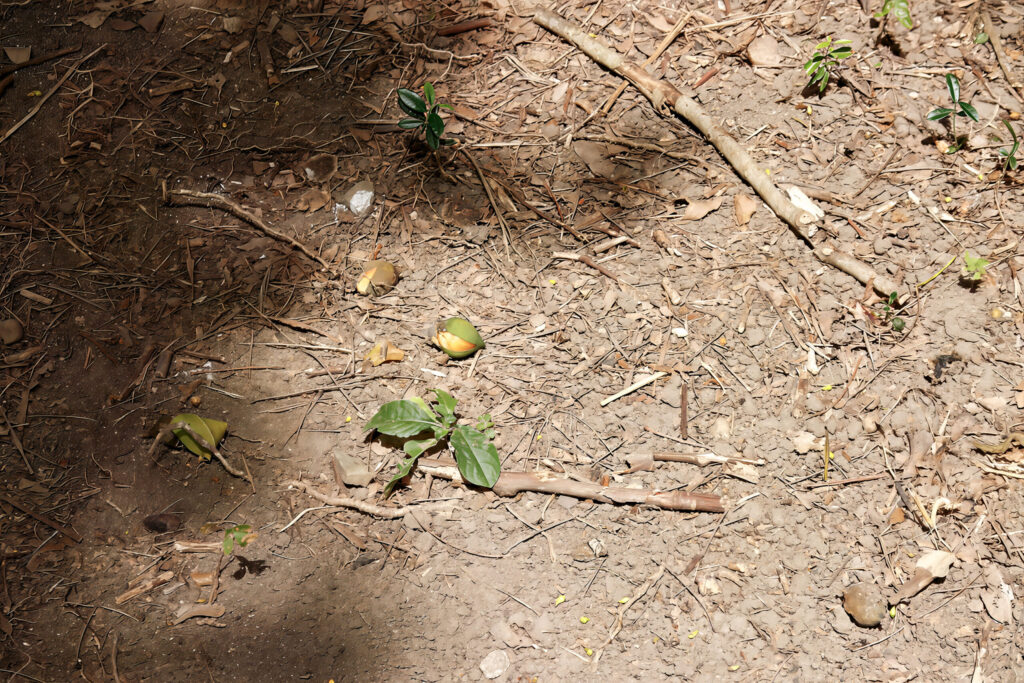
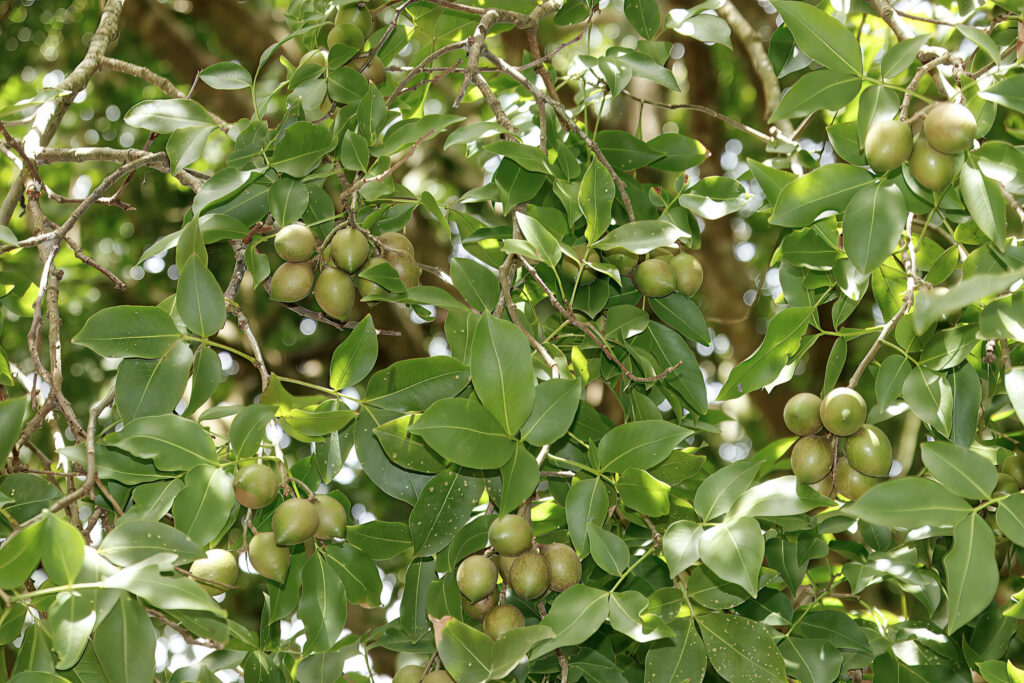
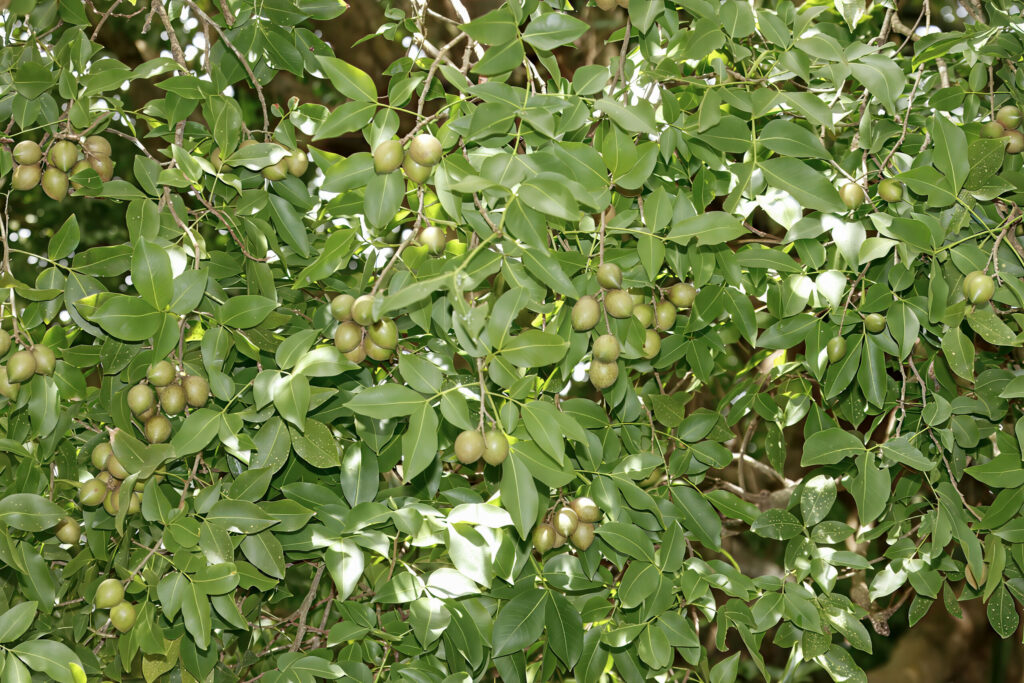
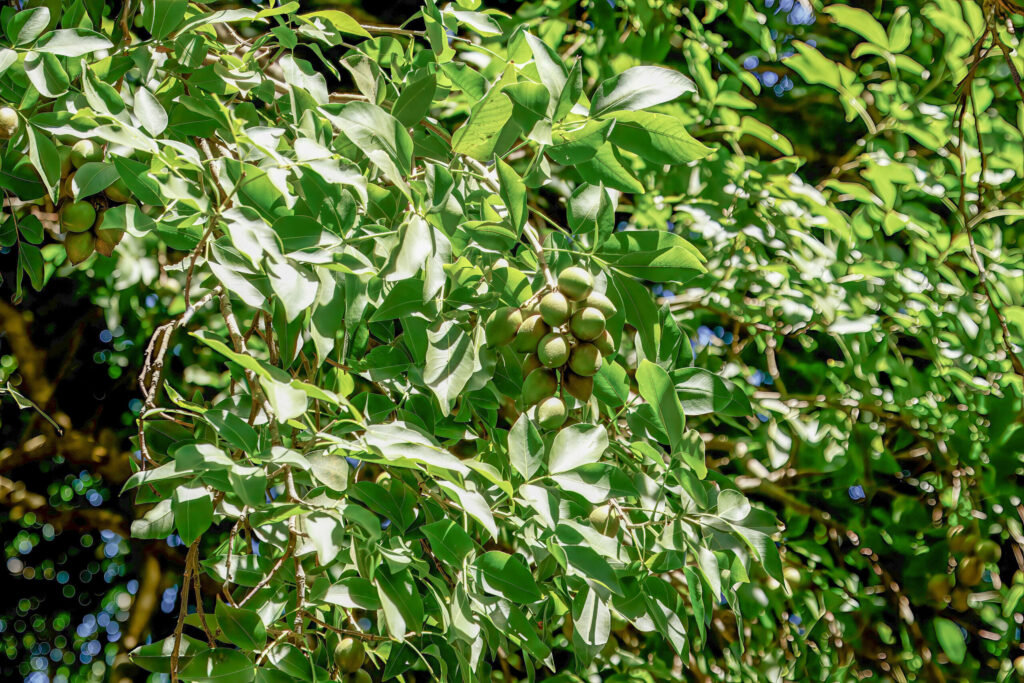
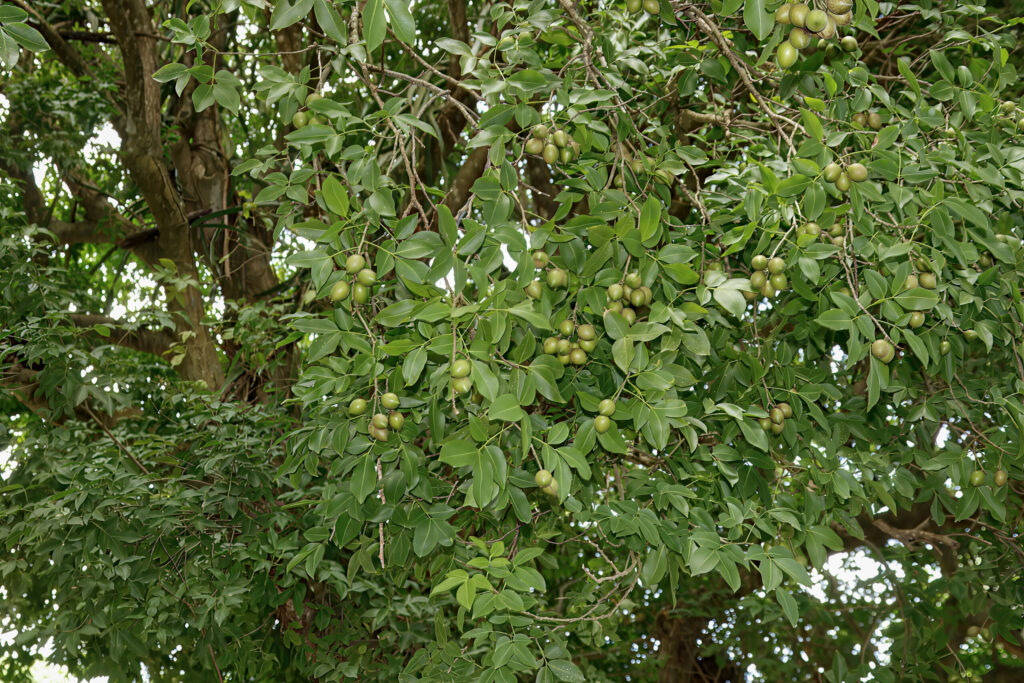
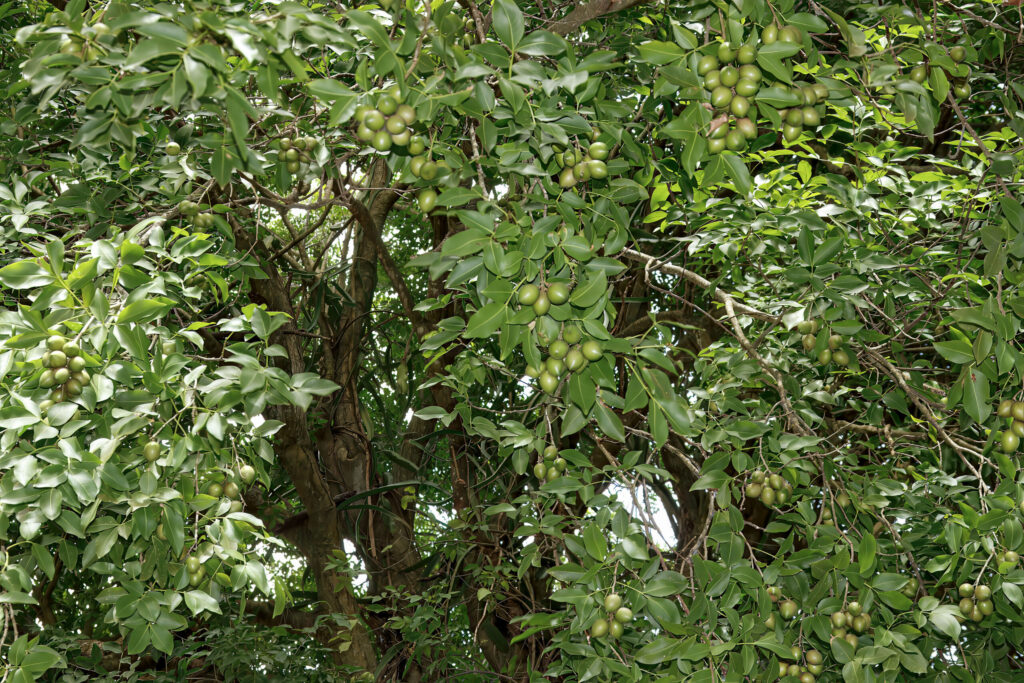
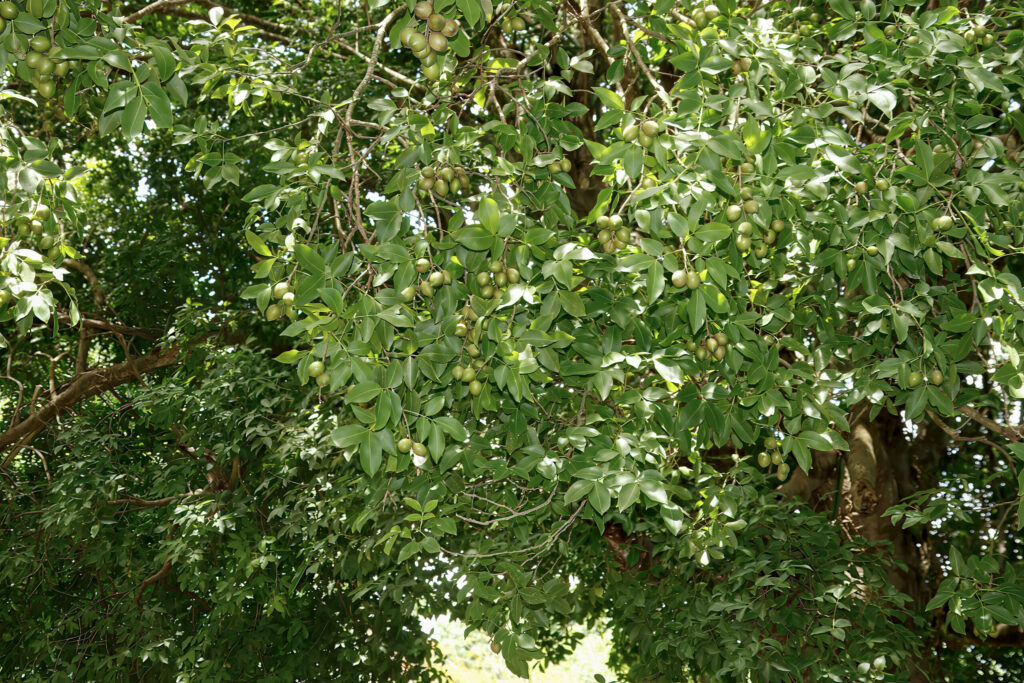
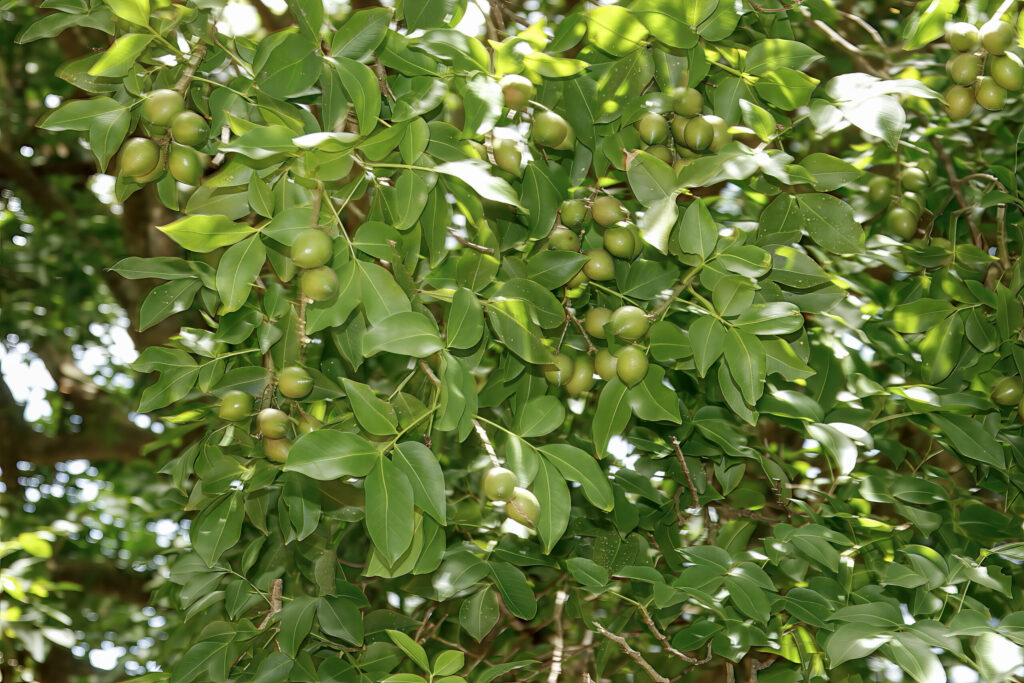
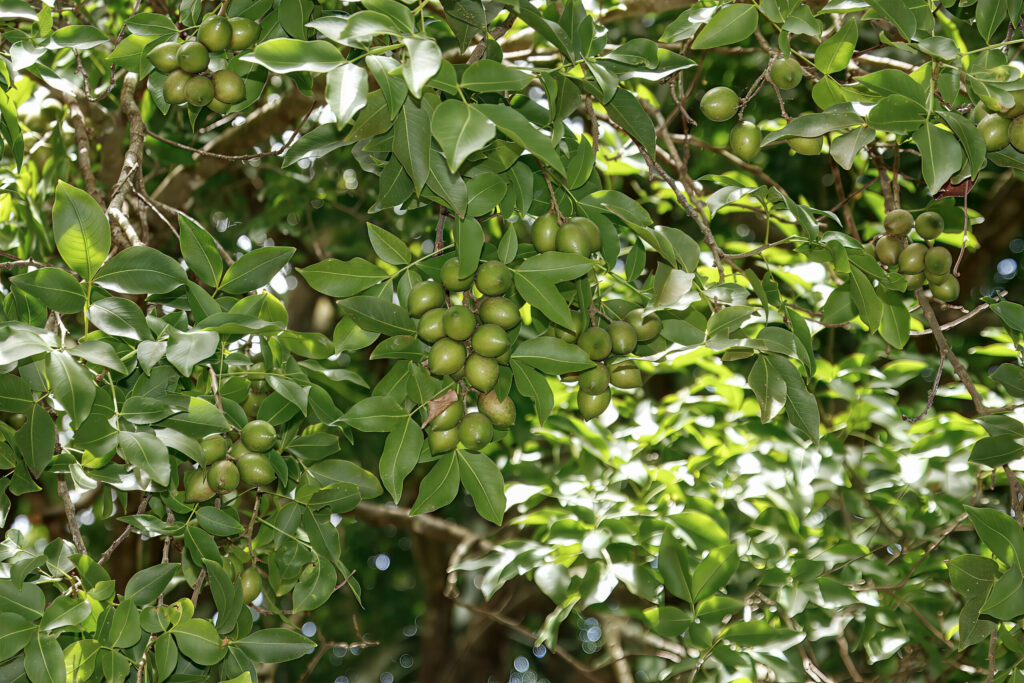
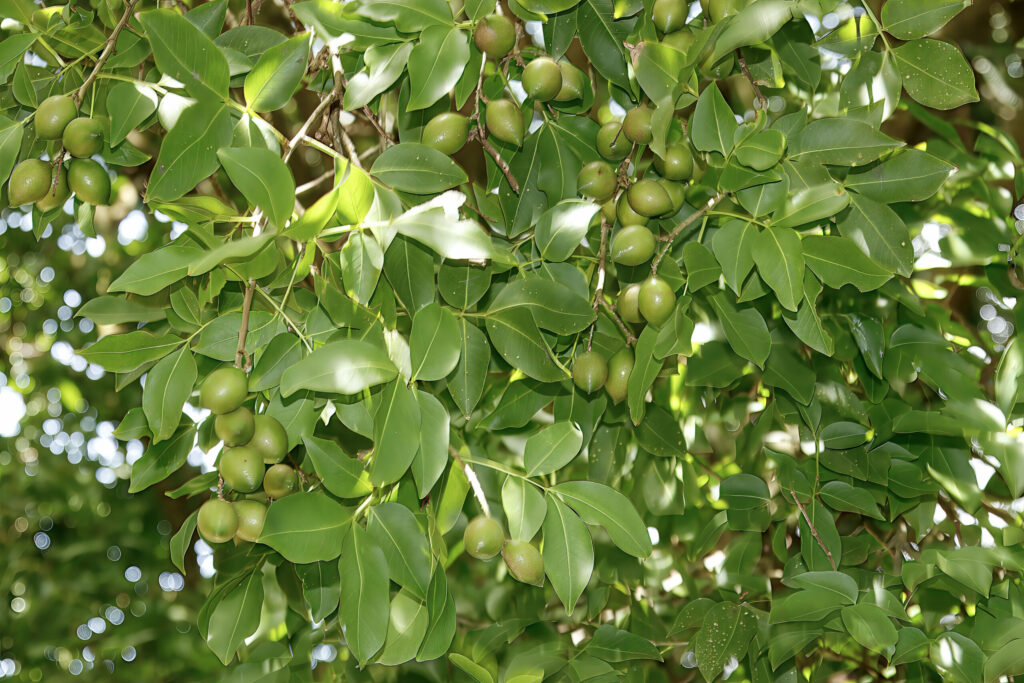
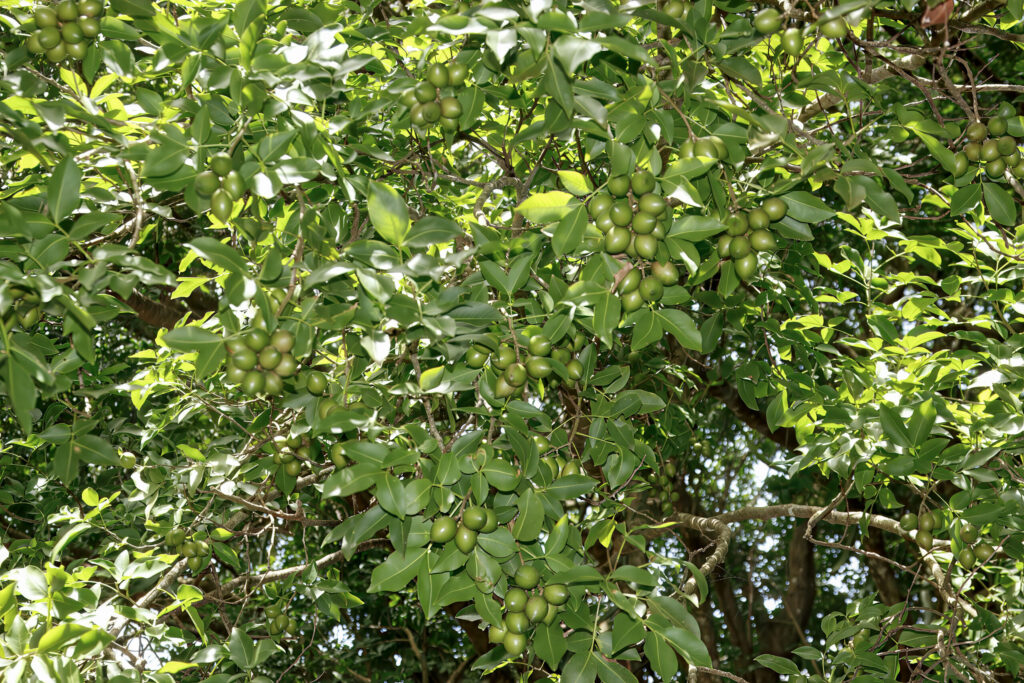
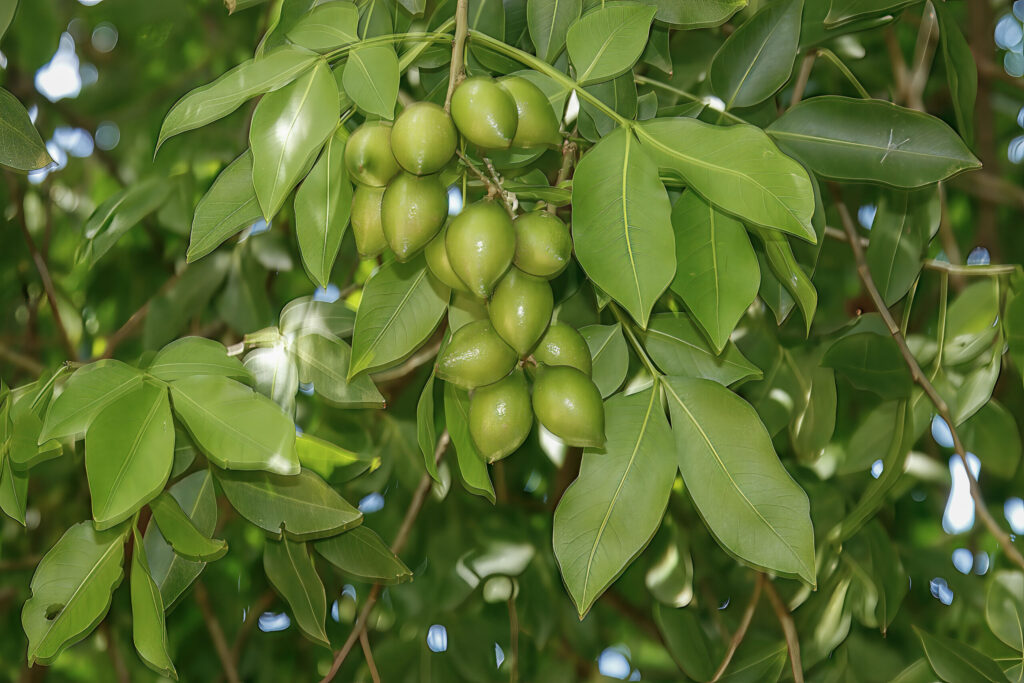
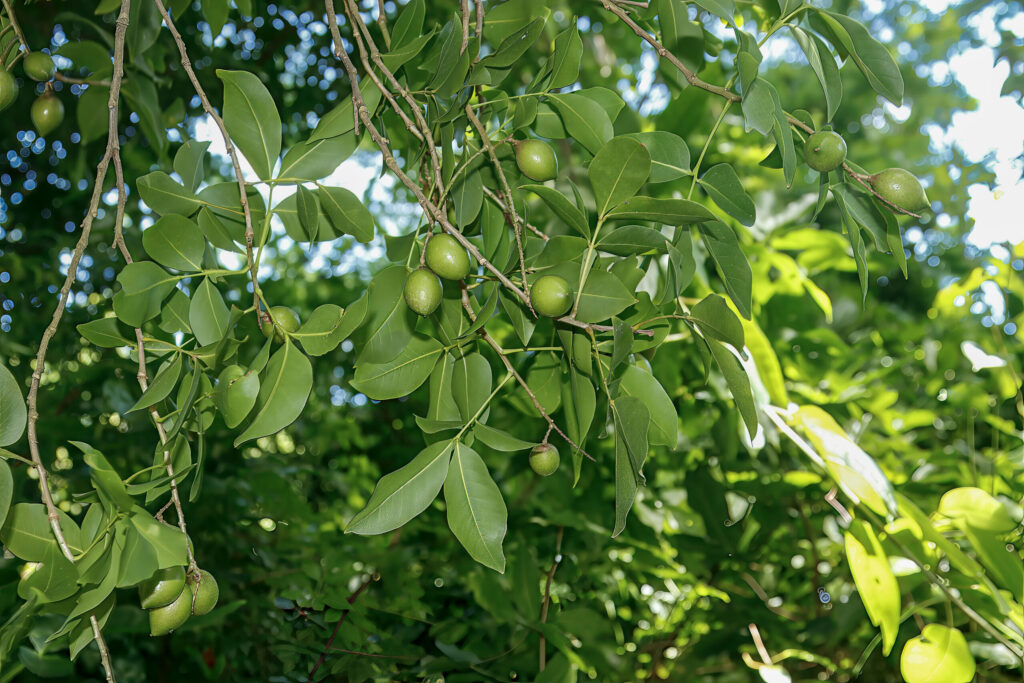
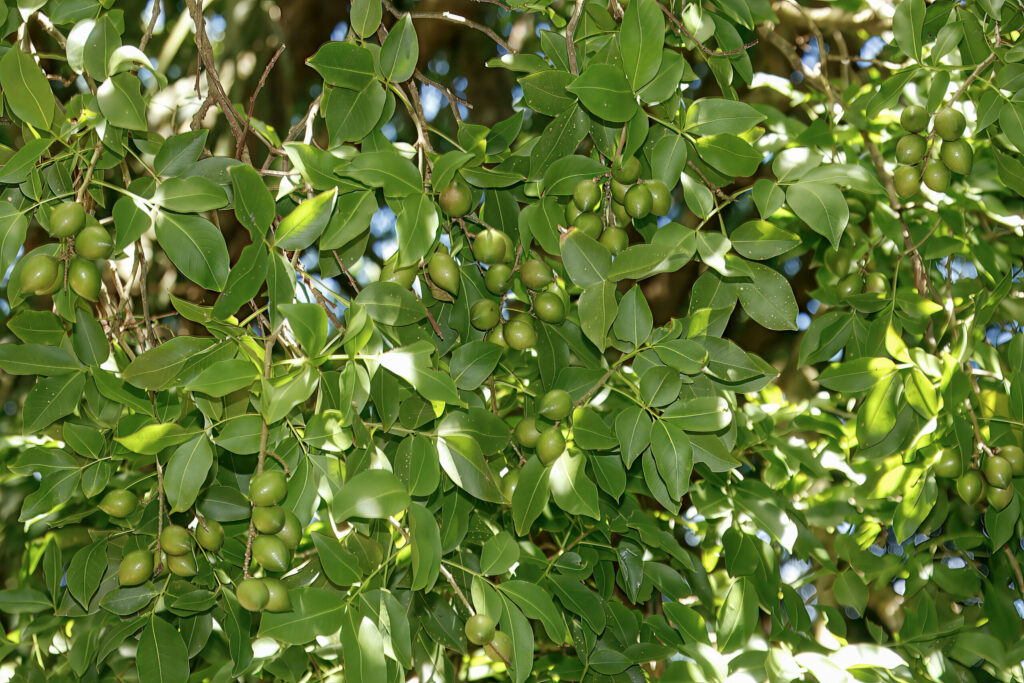
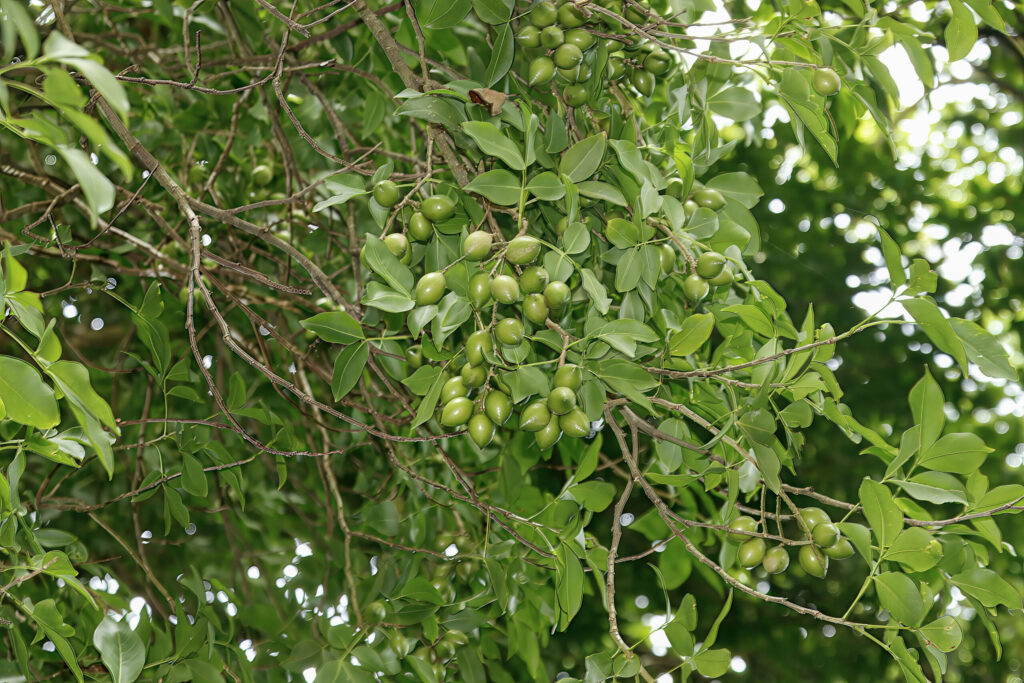
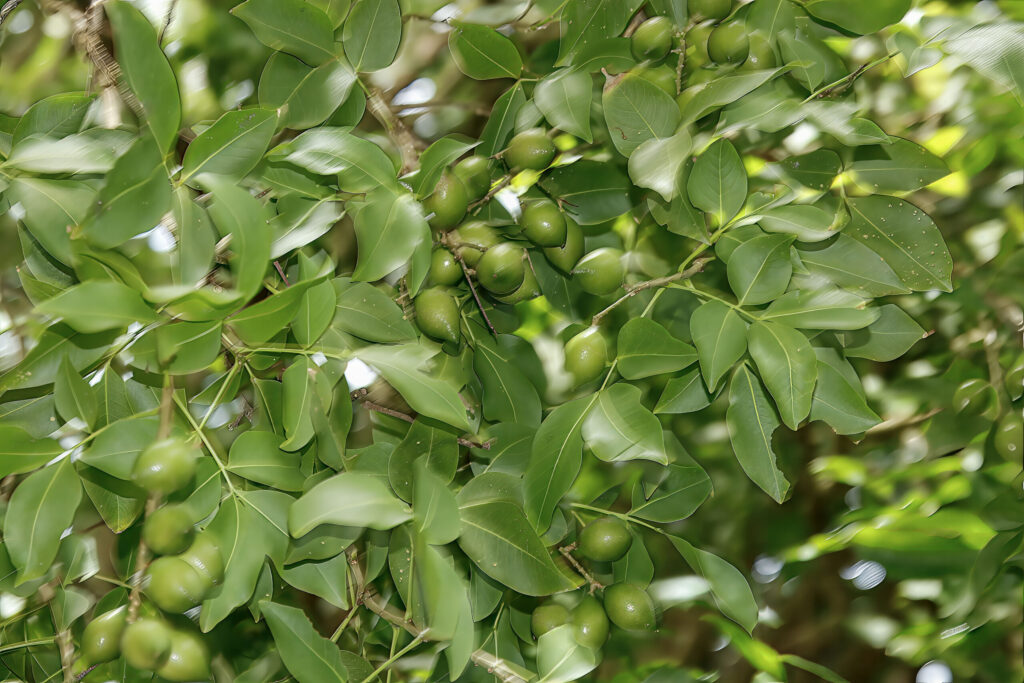
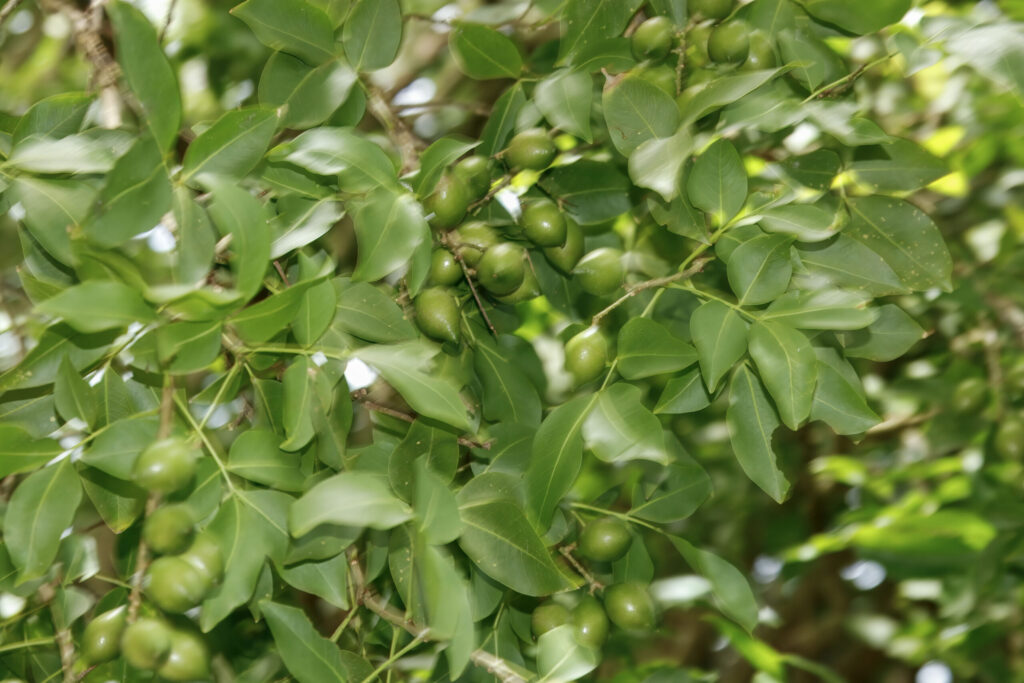
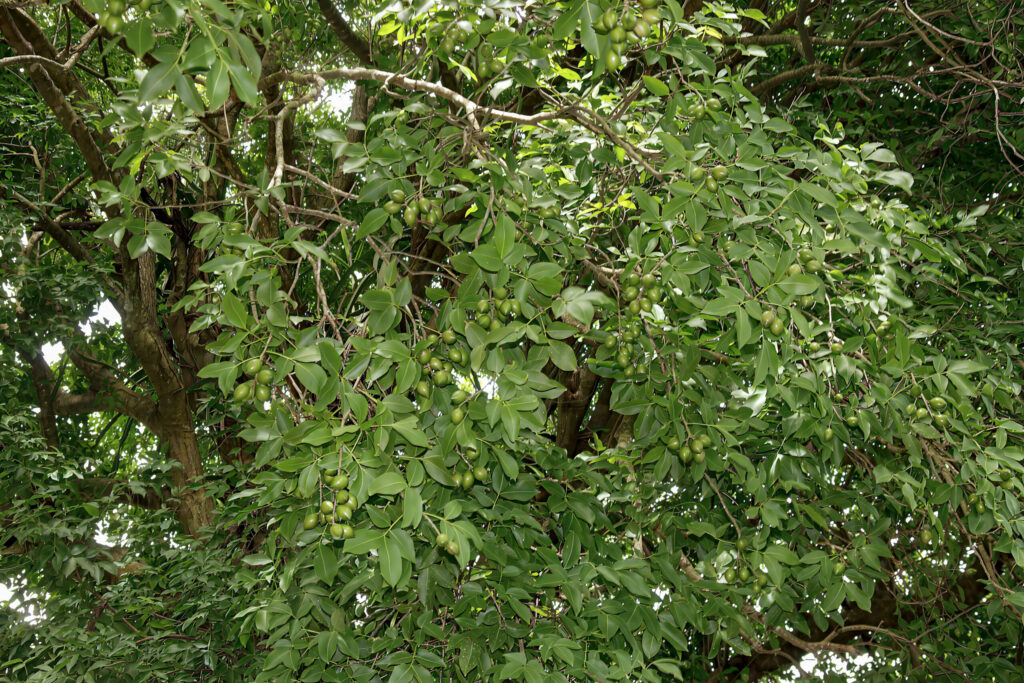
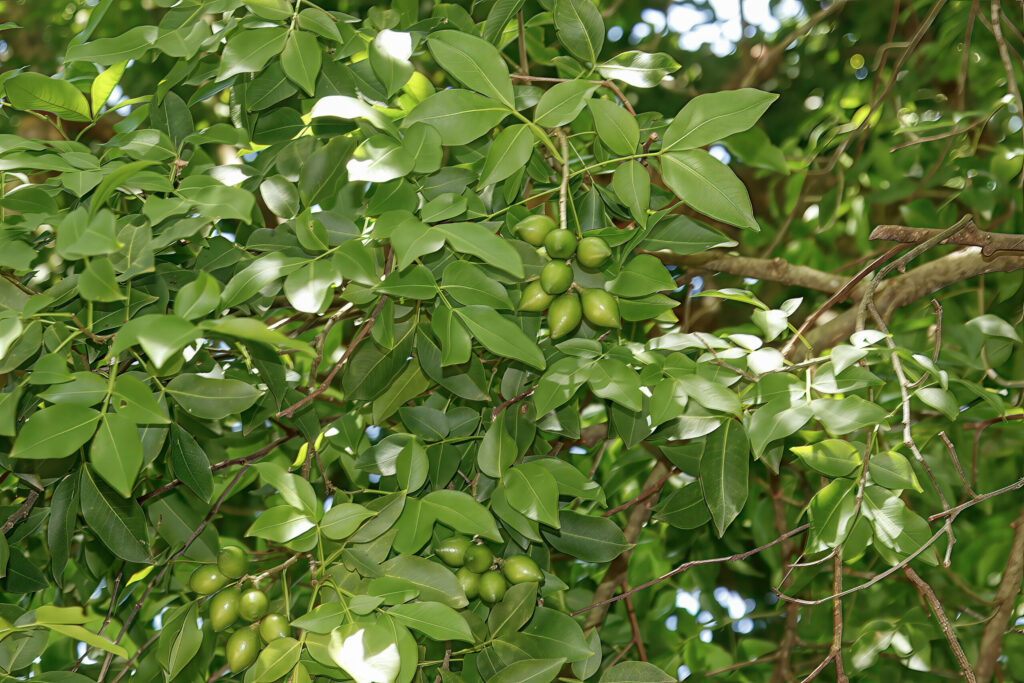
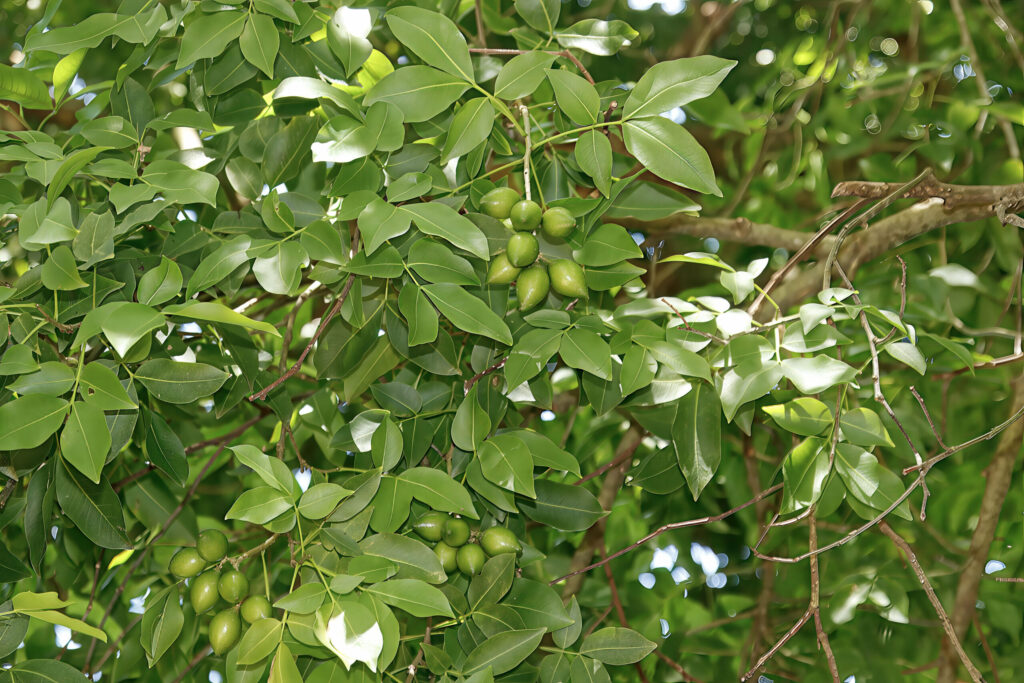
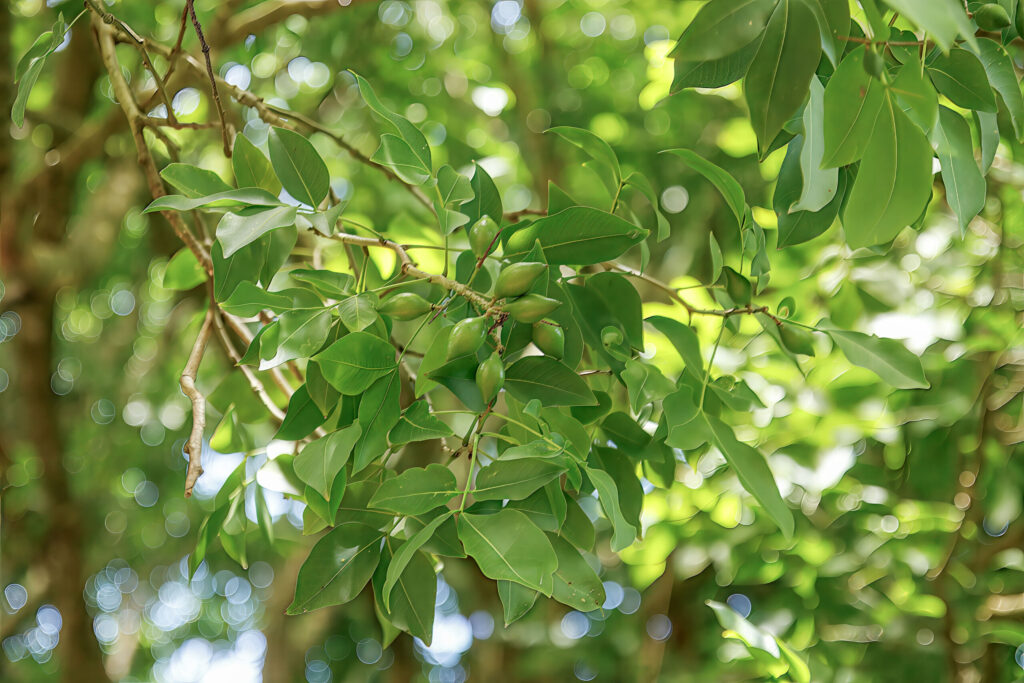
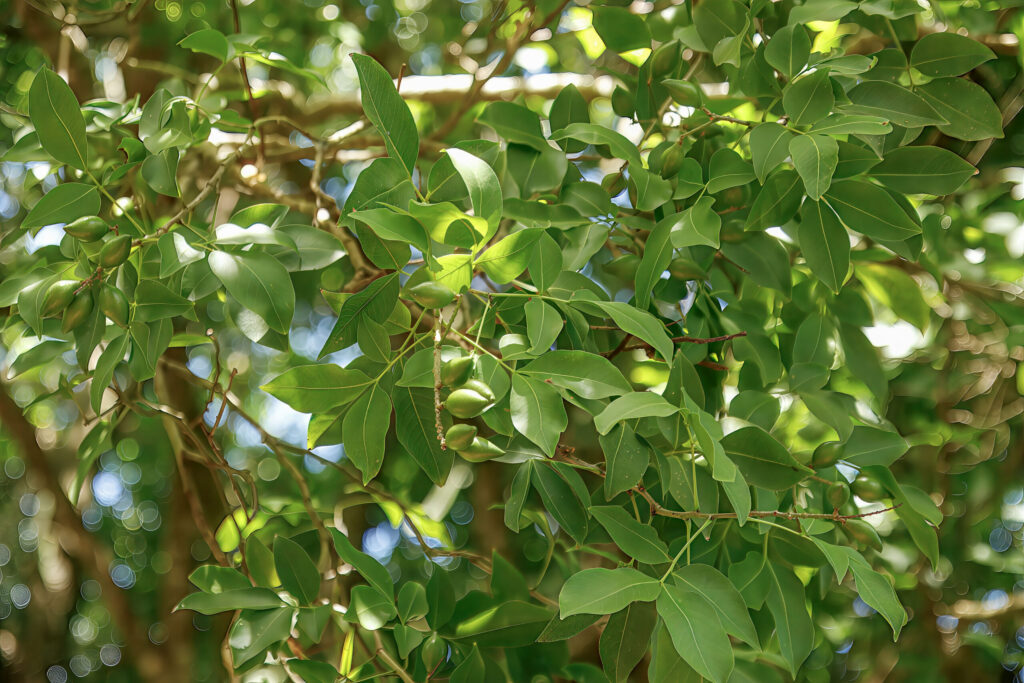
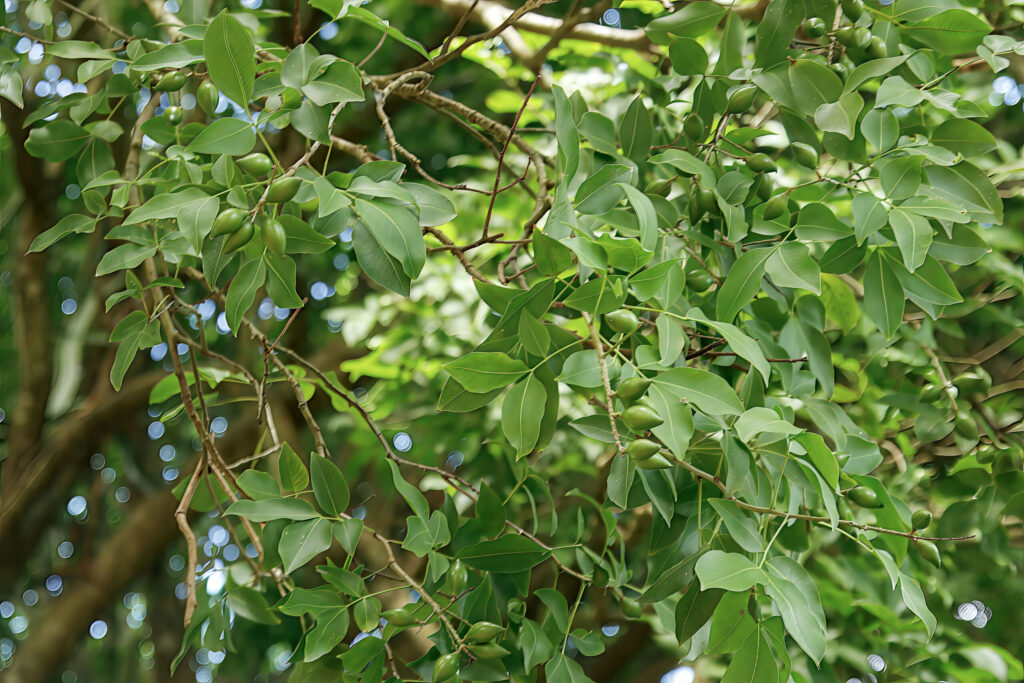
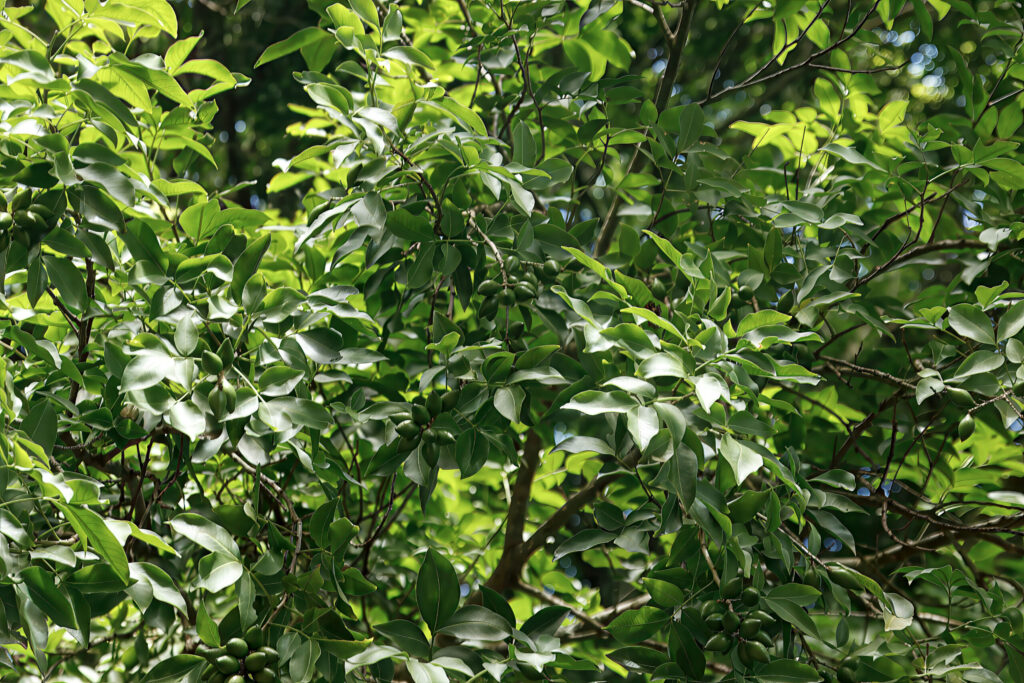
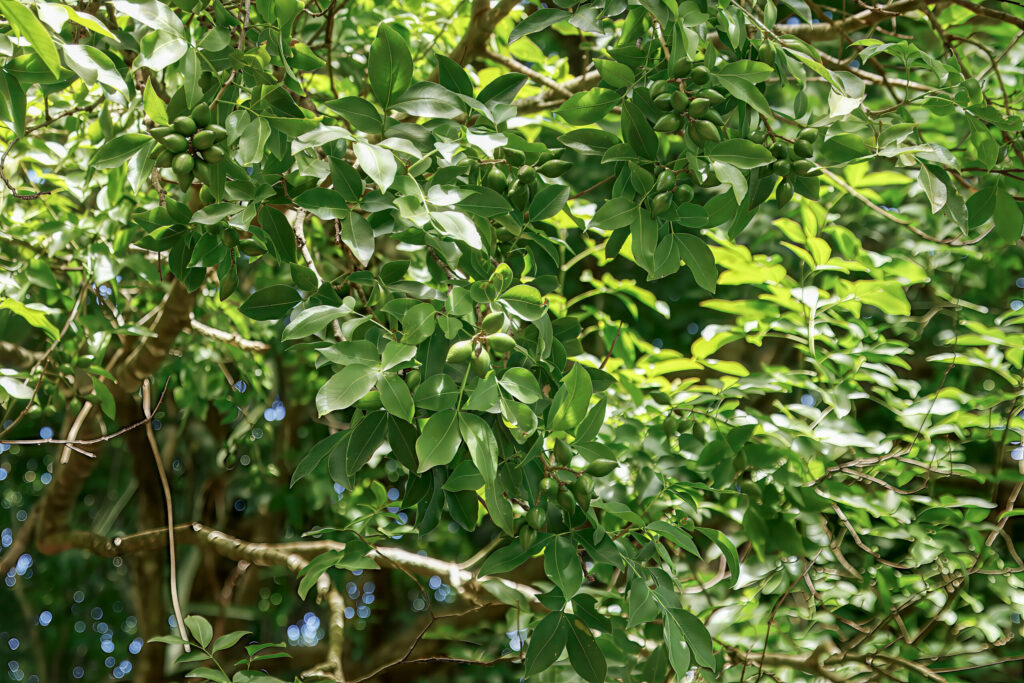
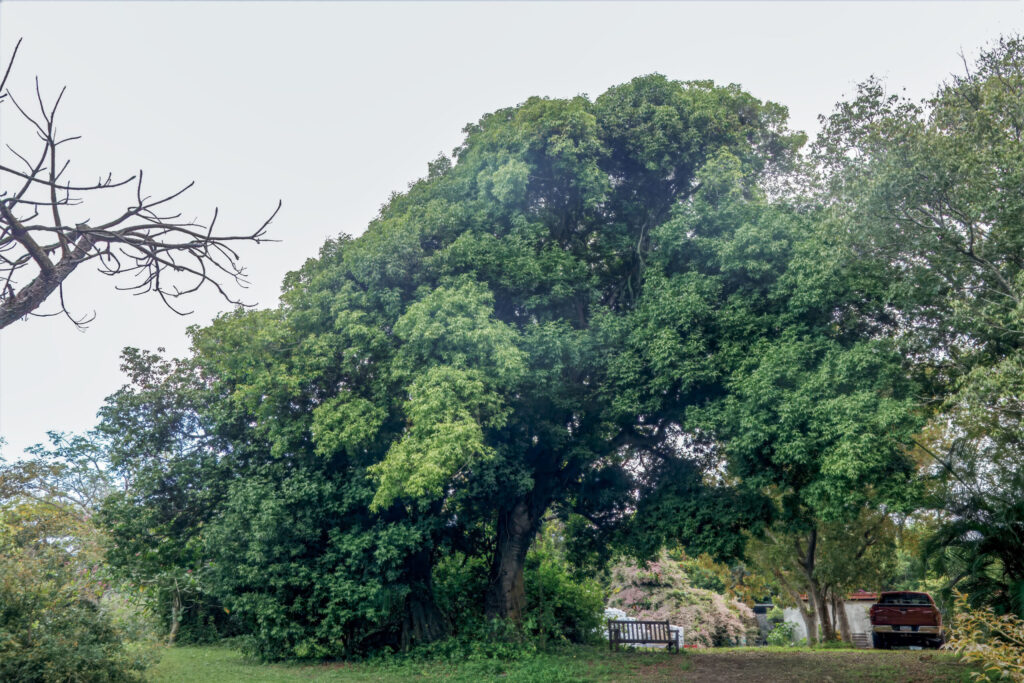
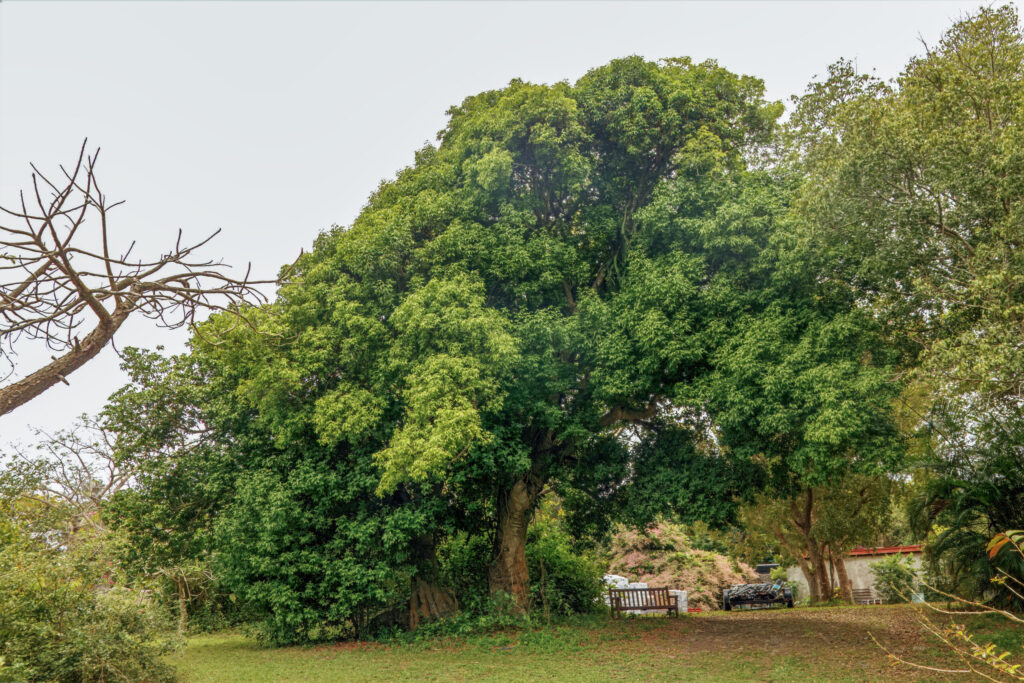
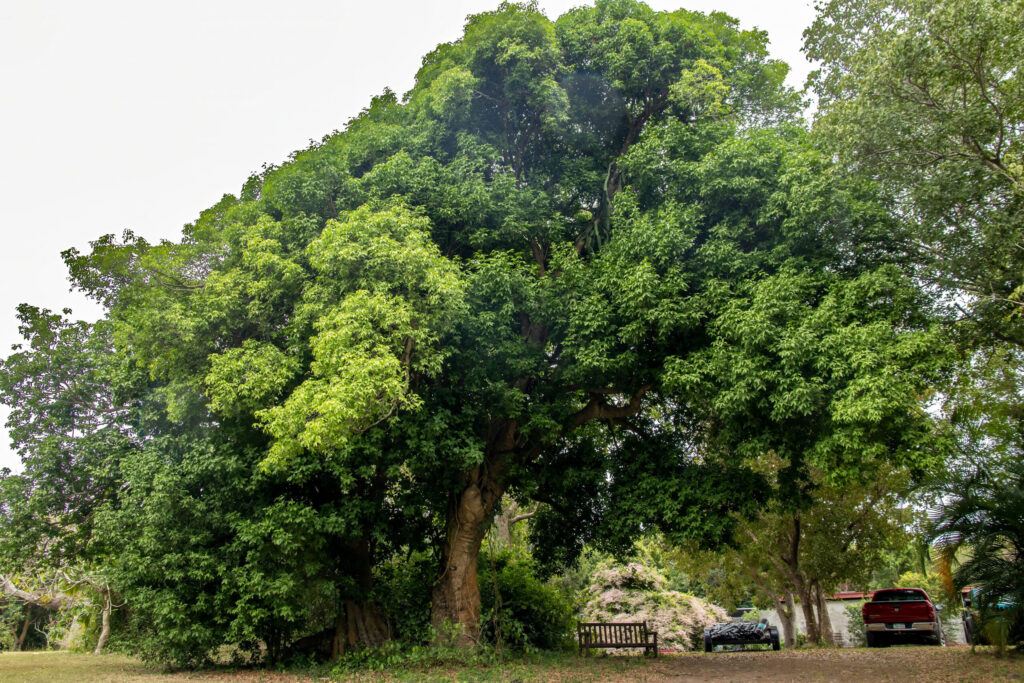
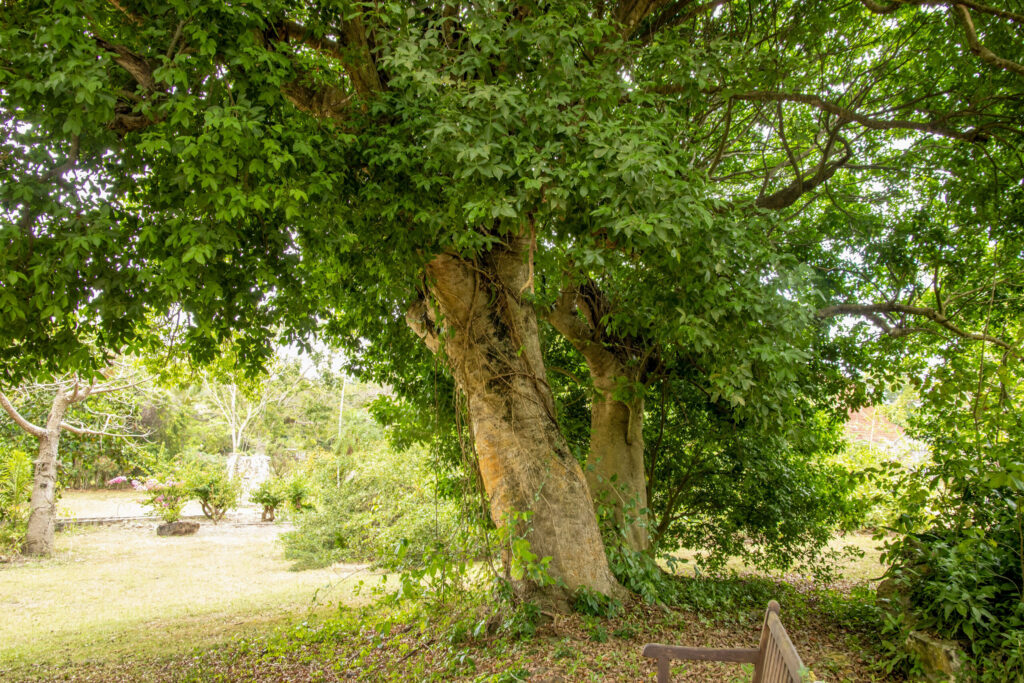
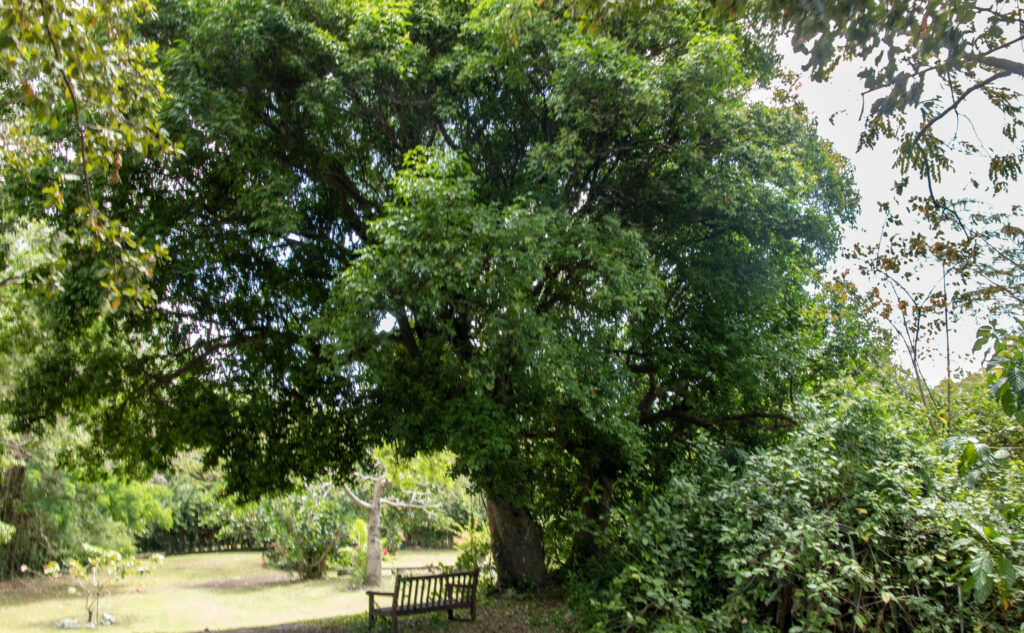
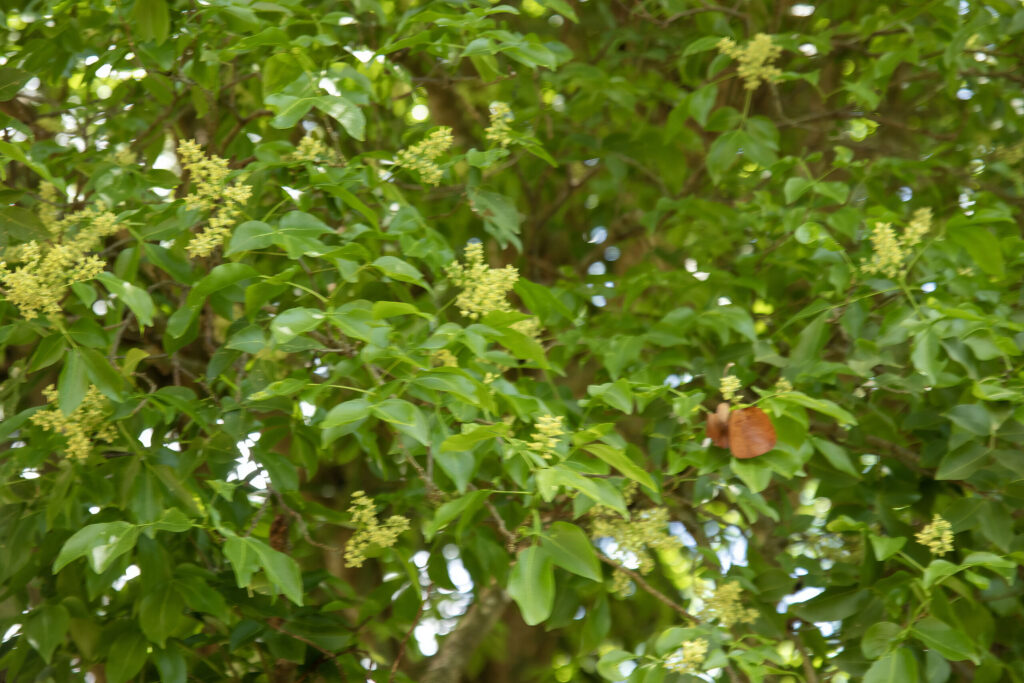
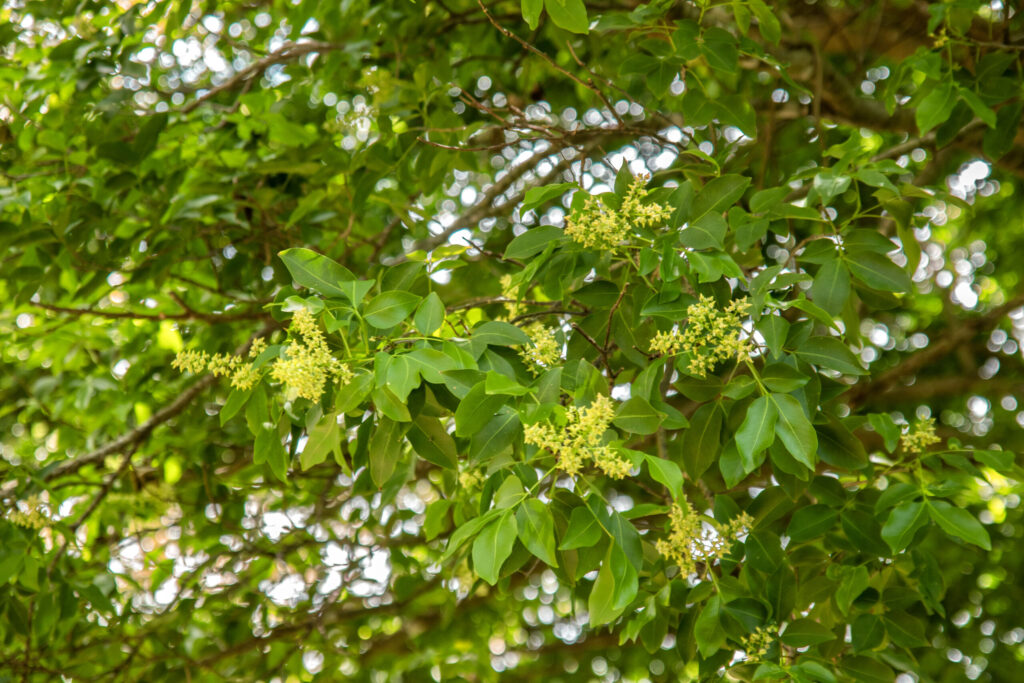
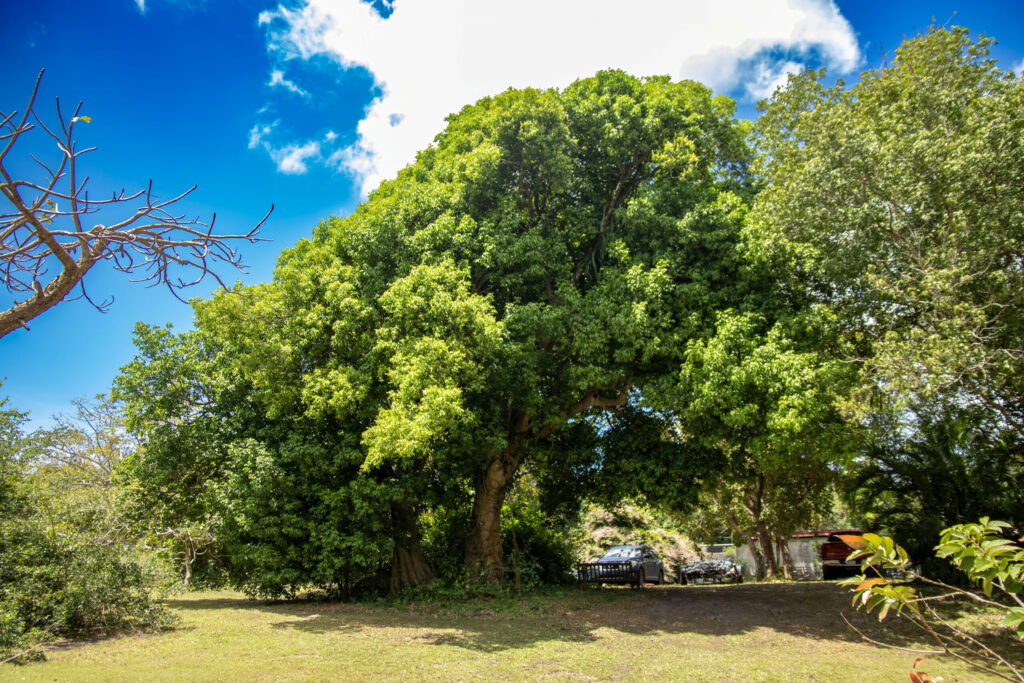
Observations:
Phenological Markers – Genip Tree (Melicoccus bijugatus)
1. Leaf Behavior
Genip is typically semi-deciduous, often shedding part or most of its foliage during the late dry season (January to March) in St. Croix.
- Leaves are pinnately compound, with 2–4 pairs of leaflets that are dark green and leathery.
- New leaf flush usually follows rains or coincides with the onset of flowering.
Observation Tips:
- Monitor for leaf yellowing and canopy thinning in late dry season.
- New flushes emerge light green and soft, rapidly darkening.
2. Flowering
Flowers are small, creamy-white to greenish, and produced in large numbers on branched panicles.
- Trees are dioecious (male and female flowers occur on separate trees), although some hermaphroditic forms exist.
- Flowering typically begins in late dry season, March to May, depending on rainfall.
- Flowering can be profuse and is key for fruit production in female trees.
Observation Tips:
- Track timing and duration of flowering for both male and female trees.
- Note pollinator activity, especially bees and ants.
- Flowering may occur before full leaf flush, so look for bare or sparsely-leaved bloom phases.
3. Fruiting
The fruit is a small, green drupe, about the size of a large marble, with a thin rind and juicy orange pulp surrounding a large seed.
- Fruits ripen over 2–4 months, typically available from July through September in St. Croix.
- Ripe fruits may drop naturally or be collected from the tree.
Observation Tips:
- Track fruit set rate, color development, and maturity.
- Observe fruit drop, especially after storms or strong winds.
- Note any animal interaction, as birds and humans alike love the fruit.
4. Seasonal Pattern (St. Croix)
- Jan–Mar: Partial leaf drop
- Mar–May: Flowering and new leaf flush
- May–Jun: Early fruit development
- Jul–Sep: Fruit maturation and peak harvest
- Oct–Dec: Dense green canopy
